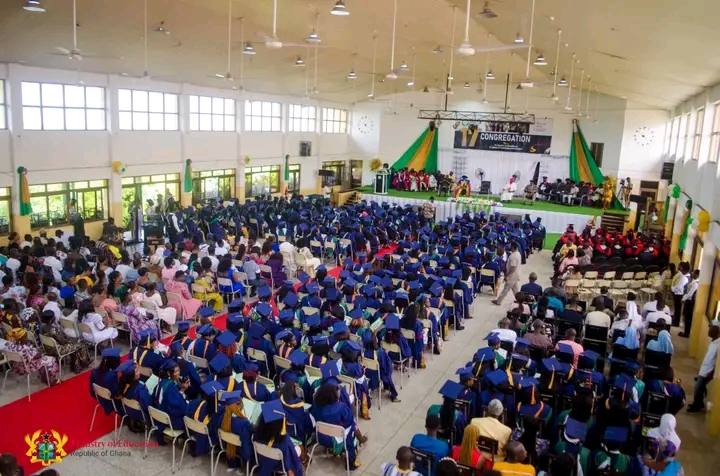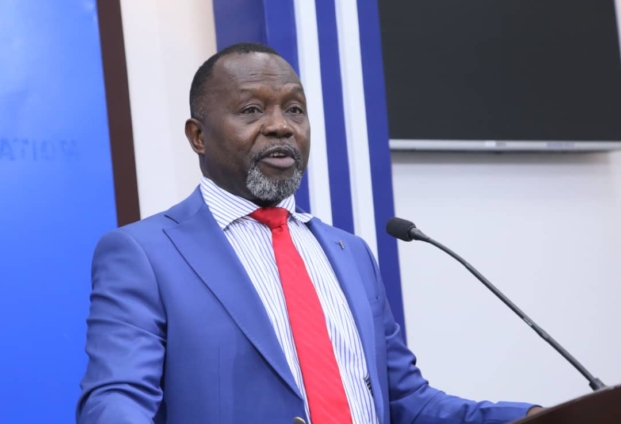Credit: Kekeli K. Blamey
In a renewed push to bridge the educational gap between urban and rural communities, the Government of Ghana has unveiled a comprehensive strategy to address teacher shortages in underserved areas.
The initiative places emphasis on structured incentives and improved working conditions, signaling a shift from moral persuasion to concrete policy reforms.
Speaking at the 17th Congregation of OLA College of Education in Cape Coast over the weekend, Deputy Minister for Education, Dr. Clement Abas Apaak, said the government is committed to ensuring equitable access to quality education by making rural postings more attractive to newly trained teachers.
“For too long, rural schools have suffered from insufficient staffing due to the reluctance of many educators to accept placements in remote areas,” Dr. Apaak said. “We are moving from appeals to action, through strategic incentives that address the real challenges teachers face in these communities.”
Despite efforts by the Ghana Education Service (GES) and successive governments, the distribution of teachers continues to be heavily skewed in favor of urban centers. According to education sector data, while the national average pupil-to-teacher ratio for primary schools stands at 1:35, rural communities often report ratios as high as 1:60, severely affecting learning outcomes and school performance.
“Children in rural areas deserve the same quality of education as those in the cities,” Dr. Apaak stressed. “And this begins with ensuring that every school, no matter how remote, has qualified and motivated teachers.”
To tackle these disparities, the government has introduced two key interventions aimed at improving teacher retention in rural and deprived communities:
- 20% Rural Incentive Allowance
Teachers posted to underserved areas will now receive a 20% salary allowance. The policy, announced by President John Dramani Mahama in his 2025 State of the Nation Address, is intended to make rural teaching more economically viable. - Teacher Dabrɛ Housing Initiative
Recognizing that a lack of decent accommodation is a major deterrent for rural postings, the government is also rolling out the “Teacher Dabrɛ” initiative, which mandates the inclusion of teacher housing in all new school infrastructure projects. The programme is designed to ease the burden of relocation and improve the overall living standards of teachers in remote areas.
“These are not just temporary fixes,” Dr. Apaak said. “They are long-term reforms aimed at transforming rural teaching into a respected and rewarding career path.”
The announcement comes amid a nationwide recruitment drive targeting the addition of 50,000 teachers into the public sector. Priority will be given to districts with acute staffing deficits, particularly in northern Ghana and other remote areas with historically low teacher-to-student ratios.
Officials at the Ministry of Education believe that with the right support mechanisms in place, a significant number of newly trained teachers will embrace the opportunity to serve in these high-need areas.
While the new policies represent a bold shift in strategy, Dr. Apaak also reminded graduates of their moral and professional obligations. He urged them to approach their careers with integrity, innovation, and compassion.
“Never underestimate the impact of your presence in the classroom,” he said. “You are nation-builders. Be ethical, be creative, and above all, be committed to the communities you serve.”
Dr. Apaak also paid tribute to the OLA College of Education for its continued excellence in female teacher education. He commended Principal Dr. Mrs. Regina Okyere-Dankwah and her team for their dedication to training generations of educators who have gone on to serve across the country.
Founded over a century ago, the all-female institution remains a cornerstone in Ghana’s teacher education landscape, producing thousands of qualified educators for the nation’s public school system.







